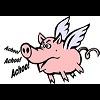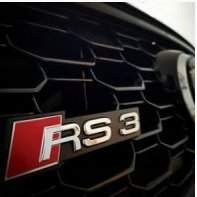Borg Warner EFR Series Turbo's V 2.0
Announcements
-
Similar Content
-
Latest Posts
-
By Murray_Calavera · Posted
I know you don't want to hear this comment, but I can't not say it. I just can't see 200kw being worth the time and effort. Its like guys with NA cars, putting in headers/exhaust/tune for a massive 20% jump in power. Great, the slow car is still slow and you're down $10,000. My vote is leave it NA or price in a gearbox upgrade and shoot for at least 300KW, preferably 350KW+. Now you have a NC that will try to kill you from time to time and will be exciting to drive -
By Murray_Calavera · Posted
Ah yep. The main message I want to pass on is, try not to get scared of ghosts when thinking about knock/knock detection. What I mean is, healthy engines make noise. Knock is also noise. Your knock sensor and ECU combo are trying to determine bad noise from good noise based on how loud the noise is. The factory knock sensors and ECU are not good at doing this. Modern ECU's are pretty decent at it, however I'd still say that you would want to verify that if your ECU says it's knock, that you actually listen to it and confirm that it is correct. Are you familiar with the plex knock monitor? https://www.plex-tuning.com/products/plex-knock-monitor-v3/ I expect you're the type of person that would be very keen to play with something like this. It is great knock detection and you can pop some headphones on and listen to what's going on. Knock that you've deliberately induced in low load low RPM areas is not really putting anything at risk and is a great tuning/learning/verification tool. I just thought this was worth mentioning based on the way you were talking about setting up a base map and the Haltech base map settings. There are better ways to spend your time then chasing ghosts and worrying about detonation in scenarios that it is crazy unlikely to encounter it. I was also wondering, what ECU are you planning to get? Will it be long til you pick it up?








Recommended Posts
Create an account or sign in to comment
You need to be a member in order to leave a comment
Create an account
Sign up for a new account in our community. It's easy!
Register a new accountSign in
Already have an account? Sign in here.
Sign In Now